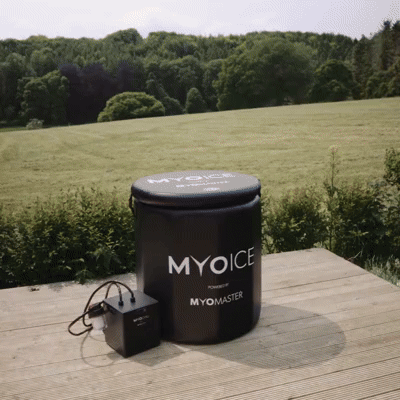What to take, how much to take, and when to take it.
Getting great quality sleep is the foundation for athletic performance, you simply can’t out train a bad night sleep. Poor sleep leads to poor muscle recovery and an increased risk of injuries, it affects our perception of pain making hard exercise feel harder than it is, it impairs our decision making especially under pressure and even decreases our immune system function.
Unfortunately, there are no real shortcuts to getting consistent quality sleep - it’s a discipline. That being said, there are some ways you can maximize your time asleep through the correct supplementation protocol. In this article we’re going to look at three of the most effective sleep supplements to improve your athletic performance.
With each of these supplements - take daily approximately one hour before bed or after the final meal of the day.
Magnesium L-Theonate
Magnesium has long been known to be a great supplement to take to enhance sleep. There are also many forms of magnesium you can take but we’re going to look specifically at magnesium l-threonate. It was discovered by researchers at MIT - their study on the compound demonstrated its ability to reduce sleep disorders and improve neuroplasticity.
It’s preferable over other forms of magnesium due to how quickly it’s absorbed by the body and raises the levels of magnesium in brain cells.
Taking it before sleep will activate the parasympathetic nervous system which is responsible for making you feel calm and relaxed. It also regulates the body's natural melatonin production which guides your sleep-wake cycles. Finally, magnesium binds to neurotransmitters called GABA receptors, calming them down in a similar way to the popular prescription sleep drug, ambien.
The correct dosage of magnesium l-threonate is approximately 145 milligrams, although it can vary depending on your size and tolerance to the compound. It should be noted that around 5% of people who take magnesium l-threonate will experience some gut discomfort. If that is the case, then you should not continue to use it.
Apigenin
Apigenin is a great supplement to take if you have trouble getting to sleep due to its sedative effect. It is a type of flavonoid, a chemical released by plants or flowers to defend themselves against external threats like infections. In humans, it has been found to improve the connections between neurons, induce feelings of drowsiness and increase sleep duration.
The sedative effect of apigenin works similarly to that of magnesium l-threonate in that it interacts with the GABA receptors. Taking it before bed will allow you to drift off faster and get great, deep sleep, allowing you to wake up in the morning feeling more refreshed.
The effective dosage for apigenin is 50 milligrams - although again, it’s worth experimenting to find your optimal dosage.
Theanine
Theanine is an amino acid that improves sleep quality by reducing the instances of sleep disturbances through the night and prolonging the Non Rapid Eye Movement stage of our sleep cycle. Prolonging this stage of sleep is key for athletic performance as this when muscle tissue repairs itself - it’s literally the time of the day where we get stronger.
It’s worth noting that some people find theanine disruptive to their sleep as it tends to give you very vivid dreams, so vivid they can become overwhelming. Although this is rare, it’s something to keep in mind.
The generally accepted optimal dosage of theanine is between 100 - 400 milligrams.








